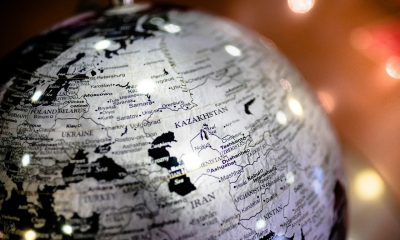EU
AB sahte spor mal savaş yeniliyor

 The European Union has been urged to help step up the fight against counterfeited sports goods.
The European Union has been urged to help step up the fight against counterfeited sports goods.
The call by the European Federation of the sporting goods industry comes with the rugby World Cup in England just a few months away.
According to a 2012 study from the European Commission, the sports industry and related activities contribute €294 billion to the EU's GDP every year and support more than 4.5 million jobs across Europe.
But there is growing concern in the industry about the scale of counterfeited sports goods "flooding" the European market.
The EU, under the Lisbon treaty, was granted new competence in the sports field and the industry is urging Brussels to do more to clamp down on counterfeiters and piracy.
It is seeking particular "enforcement strategies" targeting major sporting events such as the rugby World Cup.
Alberto Bichi is secretary general of the European Federation of the Sporting Goods Industry (FESI), the representative body for sports goods manufacturers.
Bichi points out that his organization has worked over several years with enforcement authorities in host countries in fighting counterfeiting.
He says that FESI’s activities are also focused on promoting a "more effective" regulatory framework.
But Bichi, who is based in Brussels, expressed concern with recent enforcement statistics.
He said: “There has been a dramatic drop in EU custom seizures of counterfeit sporting goods from 2011 onwards (down by approximately 65%).
"We need to adapt legislation to address constantly evolving new techniques used by global networks to bring counterfeits to the market, for example, through online sales and by transit shipments that avoid customs controls”.
His comments were echoed by FESI president Bruno Alves who outlined the detrimental effect of IPR theft on the industry’s investments in innovation, research, marketing and brand equity.
“These investments create jobs and make a very significant contribution to the European economy."
He went on: "To sustain them we must continue strengthening the partnership between public authorities and the sporting goods sector to fight counterfeiting and IP theft.”
FESI represents the interests of approximately 1,800 sporting goods manufacturers (85% of the European market) through its national sporting goods ondustry Federations and its directly affiliated member companies.
Between 70-75% of FESI's membership is made up of Small and Medium Sized Enterprises.
In total the European sporting goods industry directly and indirectly employs over 650,000 EU citizens and has an annual turnover of some €65 billion.
Bu makaleyi paylaş:
-

 Çatışmalar4 gün önce
Çatışmalar4 gün önceKazakistan devreye giriyor: Ermenistan-Azerbaycan arasındaki uçurumun kapatılması
-

 Genişleme5 gün önce
Genişleme5 gün önceAB, 20 yıl önce 10 ülkenin katıldığı iyimserliği hatırlıyor
-

 Arac4 gün önce
Arac4 gün önceFiat 500 ve Mini Cooper: Ayrıntılı Bir Karşılaştırma
-

 Covid-195 gün önce
Covid-195 gün önceBiyolojik Ajanlara Karşı Gelişmiş Koruma: ARES BBM'nin İtalya'daki Başarısı - Bio Bariyer Maske



























